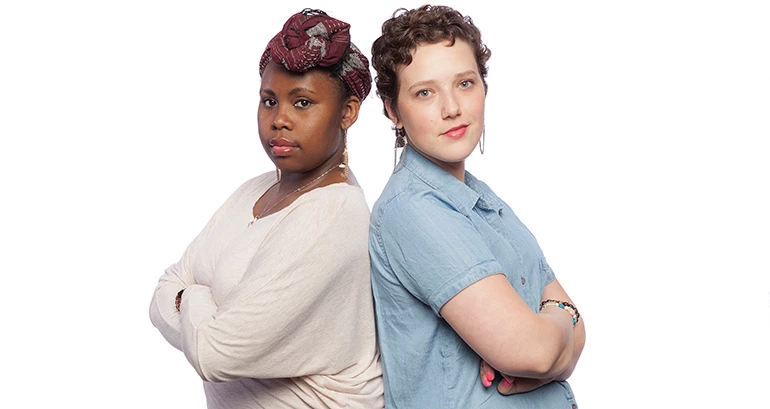YSC Survey Results: Metastatic Breast Cancer in Young Women

In 2012, we initiated a Research Think Tank to identify the most pressing research questions that would improve the quality and length of life for young women diagnosed with breast cancer. The Think Tank named as a top priority, “How can we better meet the psychosocial needs of young women with metastatic breast cancer (MBC) and their families?” As a result, in September 2013 we launched a comprehensive survey to identify the root cause of the problems and how to address them.
Metastatic Survey Participants
Survey participants included women diagnosed with any stage of breast cancer before the age of 41, who either had MBC at initial diagnosis or developed it thereafter. Four hundred seventy (470) participants met the inclusion criteria, with 360 completing the survey. Thirty-nine percent of respondents were between the ages of 34 and 37 at initial diagnosis (any stage), and 31% had MBC at initial diagnosis. Age at diagnosis of MBC ranged from 21 to over 50. The majority of respondents were Caucasian (84%), from the United States (93%), living in a suburban area (53%), married (65%) and had one or more children (65%).
Key Survey Results
The survey revealed three aspects all topic areas had in common:
- Responses indicated the importance of online tools and support with information that is easy to find, clear and current.
- The value of finding other young women living with MBC cannot be overstated. Ninety-one percent (91%) of respondents felt it was important to connect with other young women living with MBC.
- The importance of the medical oncologist in treating the “whole” patient was also noted. The survey asked, for each of the topic areas, who the respondent spoke to on her healthcare team. From a list of ten possible choices, the medical oncologist appeared as the first or second top selection in 73% of the topic areas—even for topics such as single/dating, insurance, work/disability and family/ friends. Of survey respondents who wanted more time with their healthcare team, 91% wanted more time with their oncologist.
Other Interesting Findings
There were several other notable findings from our survey:
- 82% said that anticipatory grief was a topic of importance to them. Respondents indicated that they were grieving: loss of life cut short (86%); loss of leaving spouse or partner (75%); loss of leaving behind kids without mother (68%); and loss of identity (38%).
- Since their MBC diagnosis, their stress level is worse (31%) or varies (56%), with some days stressful and some not. Emotional wellbeing has worsened in 57%.
- Young women with MBC said their emotional wellbeing was impacted by: anxiety (71%); trouble sleeping (60%); depression (45%); withdrawal from things they once liked to do (31%); and withdrawal from friends (26%). Before their breast cancer diagnosis, less than a third had anxiety (28%) or depression (24%).
- When asked if they take time to rest, 84% said “yes,” and 16% said “no” with guilt, lack of time, lack of willingness to do so and children cited as causes.
- When asked whether it mattered if in-person support focused on solely young women with MBC, 65% said “yes.”
- 90% indicated that their diagnosis impacted their sexuality, femininity or body image.
- 76% of respondents indicated that their MBC diagnosis had negatively impacted their finances or increased their financial concerns. Specific aspects causing financial hardship included: loss of income due to stopping work (59%); doctor co-pays (48%); medicine co-pays (42%); travel to treatment (30%); parking (17%); and childcare (11%).
- While respondents indicated the importance of legal and end-of-life planning, 39% had not created any legal documents for those purposes and 71% had thought about making end-of-life plans but had not yet started.
Finally, young women living with MBC indicated that they felt overlooked or isolated by traditional breast cancer organizations (77%) and that their issues were ignored (70%). Over 92% believed that public awareness should be raised about MBC and MBC in young women.
For more information you can access the complete survey here and a full comprehensive summary of the results of the survey here. Please reach out to Jean Rowe for additional information or with any questions at [email protected].
Survey Follow-Up
We are presenting the results of our metastatic survey to bring attention to the unique needs of young women living with MBC. Our research posters have been presented at national and international conferences attended by top influencers in the field of MBC. It is our hope that by sharing the results, doctors, researchers and other organizations take notice and work alongside us to aid young women with MBC. We also used the survey results to update our Metastatic Navigator and will continue to use the results to develop future programming.
Learn More About MBC Advocacy
Read more about our advocacy work for young women with MBC, through a sampling of our research posters:
- Surveying Young Women with Metastatic Breast Cancer to Create Interventions with Impact: Presented at Academy of Oncology Nurse Navigators, Association of Oncology Social Work, Breast Cancer in Young Women (BCY2) Conference, and Critical Mass in 2014.
- The Emotional Toll of Metastatic Breast Cancer on Young Women: Presented at Advanced Breast Cancer Conference (ABC3) in 2015.
- Information Needs of Young Women with Metastatic Breast Cancer to Manage their Treatment, Side Effects and Clinical Trials: Presented at ABC3 in 2015.
Connect with Others
Find women who know what it’s like to face breast cancer at a young age. The YSC community makes it easy to find and connect with other young survivors and co-survivors.
